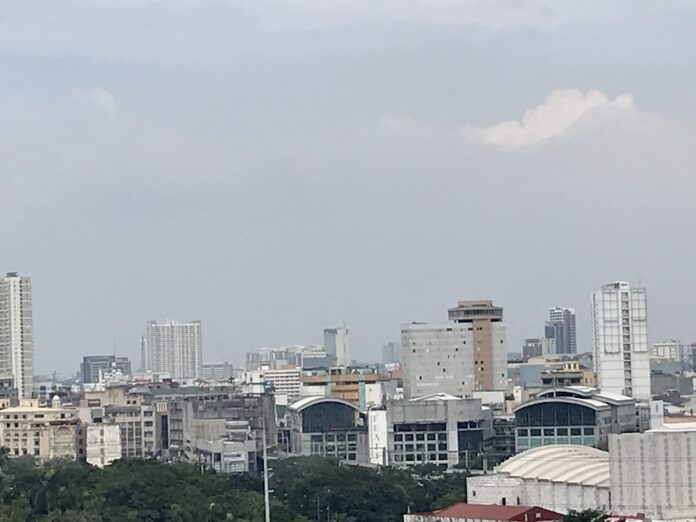
-
The No Vaccine, No Ride policy will no longer be enforced in the National Capital Region starting February 1
-
This follows the region being placed under a looser COVID-19 Alert Level 2
-
Amid declining COVID-19 cases, NCR, Batanes, Bulacan, Cavite, Rizal, Biliran, Southern Leyte and Basilan will be under Alert Level 2 from February 1 to 15, 2022
-
Philippine borders reopen to tourists in early February
-
Fully vaccinated tourists and travellers from visa-free countries no longer need to go through mandatory quarantine from Feb 10
The no vaccine, no ride policy will no longer be enforced in Metro Manila by February 1 as the metropolis de-escalates to Alert Level 2, according to the Department of Transportation (DOTr).
In a statement, DOTr noted the policy is only being implemented while NCR is under Alert Level 3 status or higher. “Once we de-escalate to Alert Level 2, the no vaxx, no ride policy shall automatically be lifted,” it said.
DOTr on January 17 started enforcing the controversial policy, contained in DOTr Department Order (DO) No. 2022-001 and which limited public transportation access to vaccinated individuals in the NCR when the region is under Alert Level 3 status or higher.
Issued on January 11, DOTr DO 2022-001 aims to restrict movement of unvaccinated individuals in NCR following an uptick in COVID-19 cases with the spread of the highly infectious Omicron variant.
NCR has been under Alert Level 3 since January 3 due to the rise in COVID-19 cases.
The Inter-Agency Task Force for the Management of Emerging Infectious Diseases on January 30 placed NCR, Batanes, Bulacan, Cavite, Rizal, Biliran, Southern Leyte, and Basilan under Alert Level 2 from February 1 to 15, 2022 amid declining COVID-19 cases.
The following cities and provinces, meanwhile, have been placed under Alert Level 3:
- Cordillera Administrative Region: Abra, Apayao, Baguio City, Benguet, Kalinga and Mountain Province
- Region I: Dagupan City, IlocosNorte, Ilocos Sur, La Union and Pangasinan
- Region II: City of Santiago, Cagayan, Isabela, Nueva Vizcaya and Quirino
- Region III: Angeles City, Aurora, Bataan, Nueva Ecija, Olongapo City, Pampanga, Tarlac and Zambales
- Region IV-A: Batangas, Laguna, Lucena City and Quezon Province
- Region IV-B: Marinduque, Romblon, Occidental Mindoro, Oriental Mindoro and Puerto Princesa City
- Region V: Albay, Camarines Norte, Camarines Sur, Catanduanes, Masbate, Naga City and Sorsogon
- Region VI: Aklan, Antique, Bacolod City, Capiz, Iloilo City, Iloilo, Negros Occidental and Guimaras
- Region VII: Cebu City, Lapu-Lapu City, Mandaue City, Bohol, Cebu, Negros Oriental and Siquijor
- Region VIII: Ormoc City, Tacloban City, Eastern Samar, Leyte, Northern Samar and Western Samar
- Region IX: City of Isabela, Zamboanga City, Zamboanga Del Sur, Zamboanga del Norte and Zamboanga Sibugay
- Region X: Bukidnon, Cagayan de Oro City, Iligan City, Lanao del Norte, Misamis Occidental and Misamis Oriental
- Region XI: Davao City, Davao Del Sur, Davao Del Norte, Davao Oriental and Davao de Oro
- Region XII: General Santos City, North Cotabato, Sarangani, South Cotabato and Sultan Kudarat
- Region XIII: Surigao del Norte, Surigao Del Sur, Agusan Del Norte, Agusan del Sur and Butuan City
- Bangsamoro Autonomous Region in Muslim Mindanao: Maguindanao, Cotabato City and Lanao Del Sur
Reopening of borders
In another development, fully vaccinated tourists and travellers from visa-free countries will no longer need to go through mandatory quarantine from February 10. The reopening of the Philippines to tourists comes nearly two years after borders were closed due to COVID-19.
The Philippine government is also removing quarantine requirements for vaccinated Filipinos returning to the country starting Feb. 1, and anyone under quarantine at that time will be released from it.
The policy will “contribute significantly to job restoration, primarily in tourism-dependent communities, and in the reopening of businesses that have earlier shut down,” Tourism Secretary Berna Romulo-Puyat said in a statement.




